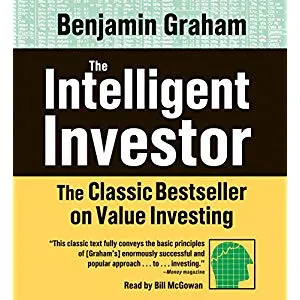Hello, My name is Cpt.Laserbeam. As an English learner, I am writing this blog to improve my writing skills. Please feel free to voice your opinion(positive or negative) down below so that I can improve my writing technique. Thank you!
Estimate Reading Time: 15 min

I believe that this book needs no introduction. It is one of the most established book for starters looking to build their portfolio. Benjamin Graham is one the many mentors of Warren Buffett. Till this day, Warren Buffett follows the principles of investing prescribed by this book. This book offers a myriad of prudent and wise advice for investing. I will be addressing this blog post to laymen investors since I am one myself. Instead of summing up the book, I will be talking about 3 major takeaways. If you find anything interesting, please get the full book!
General Portfolio Strategy
There is a general belief that the risk an investor is willing to take is in direct proportion to the rate of return. However, the author argued that the amount of risk is dependent on the amount of intelligent the investor is willing and able to exercise. The minimum return goes to passive investor who wants to be free from the burden of concern. On the other hand, maximum return would be suited for enterprising investor who enjoys maximum keenness. Assuming most readers are laymen investor, by which I mean investor who is interested "merely in safety and the freedom from bother" (Graham, pg.4) the golden ratio for your portfolio would be 50% high grade bond plus 50% leading common stock. The rational behind it is that at all times this portfolio set-up have a significant amount of funds in both bond-type holding and equities. Most importantly, it free defensive investors from being drawn into market fluctuation while making some moves in response to the market.The fallacy of Buy-Low-Sell-High Approach
The average investor cannot successfully anticipate price movement. Even though there are well-defined traits of bull market, (i.e. historically high price, high P/E ratio, low divined yield against bond yield, much speculation on margin and many offering of new common-stock issue of poor quality) there were sufficient variation in market cycle that complicates matter. As the book mentioned, the Great Bull Market of the 1920s is a great example when the market did not go quite as everyone anticipated. It is recommended that provisional changes should be done from stocks to bond if stock price appears less or more attractive by value standard.Marketing Forcast
Investors are constantly bombarded by innumerable predictions which almost appear daily. For some reason, investors have been persuaded to believe that brokers or service forecast are more dependable than forming opinion of their own. However, it is absurd to believe that the general public could profit from it. If you were to follow some system or leadership in the market, you must be able to do it better than numerous peers and out-perform them as well. There is no basis either in logic or in experience to believe that average investor could reliably predict market movement, which he himself is a part of.
I hope this blog have been beneficial to you and there is at least one thing you can take-away. Please check out the book in the link below. All suggestions or comments are welcomed. Thank you!!! Have a great day!!!!! :-)))
The Intelligent Investor on Amazon